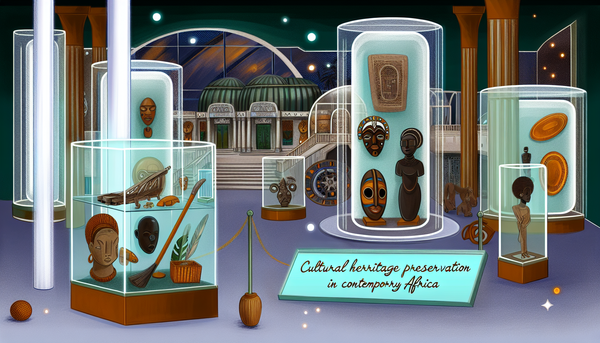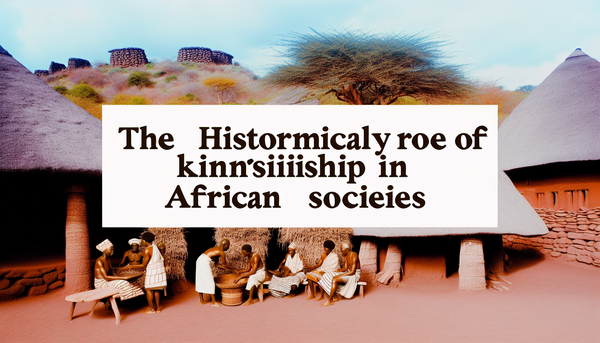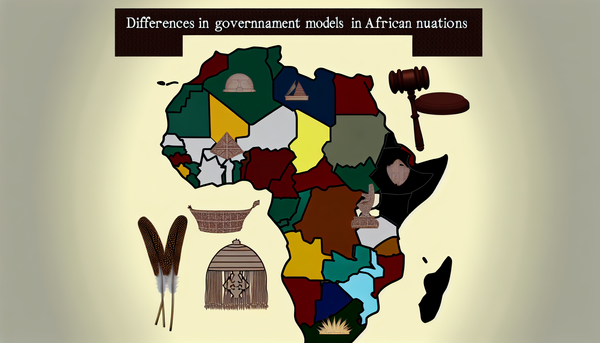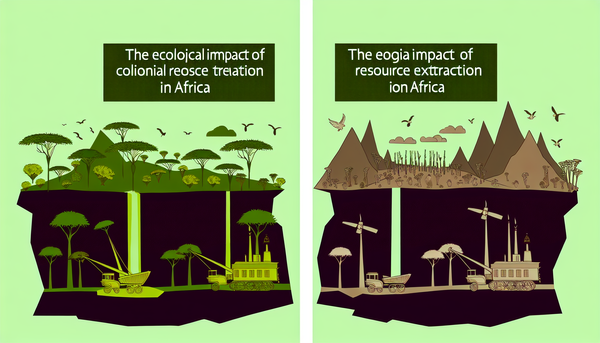Sport as a Tool for Unity in Post-Colonial Africa
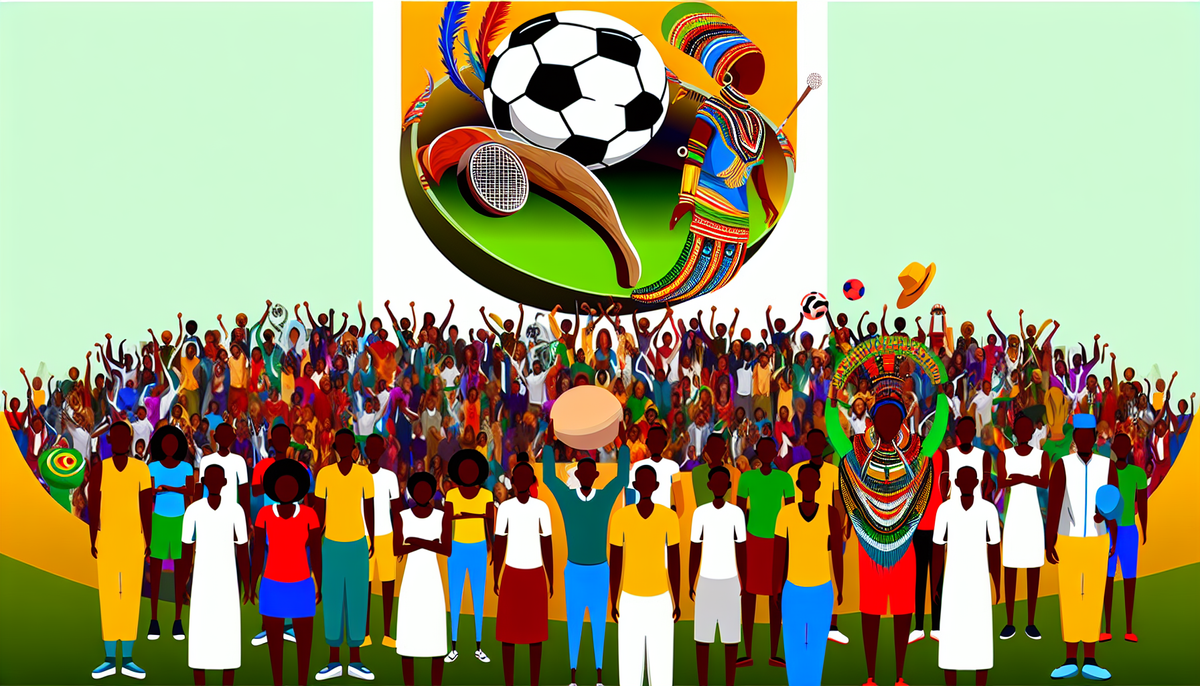
Introduction to Sports Impact in Africa
Sport has long been a powerful force in shaping cultural identities and fostering community ties across the globe. In Africa, its significance extends beyond mere entertainment; it represents hope, resilience, and unity in the face of diverse challenges. The continent's rich athletic heritage, from ancient traditions to modern pursuits, illustrates the importance of sport in unifying people from various ethnic backgrounds and regions.
Post-colonial Africa has grappled with issues such as political instability, economic disparity, and social division, often stemming from historical injustices and colonial legacies. In this context, sports serve as a crucial vehicle for promoting peace and reconciliation. Events like the African Cup of Nations and the continent's participation in global competitions enable nations to rally together, transcending tribal and regional divides.
Moreover, grassroots initiatives and community programs provide opportunities for youth engagement, fostering teamwork and leadership skills. By harnessing the power of sport, African countries can cultivate a strong sense of national pride while encouraging collaboration across different societal factions. As we delve deeper into the role of sport in promoting unity in post-colonial Africa, it becomes evident that this dynamic field is instrumental in bridging gaps and nurturing harmonious relationships among diverse populations.
Historical Perspectives on Colonial Legacies
Colonialism profoundly altered the social, political, and economic landscapes of Africa, leaving behind complex legacies that continue to influence the continent today. European powers imposed arbitrary borders, disrupting traditional communities and fostering ethnic tensions. These divisions often heightened societal fractures, which persisted long after independence. The colonial era also introduced a new paradigm of sports, primarily influenced by British, French, and Portuguese favorites, such as soccer, rugby, and cricket.
Initially, sports were used by colonizers as a means of control, promoting physical prowess and discipline among the indigenous populations, reinforcing colonial ideologies. However, sports inadvertently became a platform for resistance and unity among African communities. Nationalist movements often utilized sport to galvanize public sentiment against colonial rule, with athletes and teams embodying the spirit of resistance and hope for a brighter future.
Post-independence, the remnants of colonialism manifested in various forms, including socioeconomic disparities and lingering ethnic divisions. Sporting events emerged as a potential remedy. By encouraging collaboration and fostering a sense of national pride, sports began to transcend the divisions created by colonial rule. Understanding these historical perspectives is crucial for recognizing how sport has evolved into a tool for reconciliation and unity in contemporary Africa.
Case Studies: Football and Rugby Success Stories
In Africa, both football and rugby have showcased remarkable success stories that illustrate their potential as unifiers across diverse cultures and backgrounds. Football, often dubbed "the beautiful game," has captured the hearts of millions and served as a catalyst for national pride and social cohesion. For instance, the 1995 Rugby World Cup in South Africa became a defining moment in the nation’s post-apartheid history. Hosting the tournament symbolized unity for a country deeply divided along racial lines. The country’s victory, led by the iconic Nelson Mandela, not only uplifted the national spirit but also fostered a sense of belonging among previously marginalized communities.
Similarly, football has been instrumental in promoting unity across various African nations. The success of the Senegalese national team in the 2002 FIFA World Cup, where they reached the quarter-finals, united the nation and instilled a sense of hope and pride among its citizens. Local clubs, too, have nurtured community bonds, reflecting the diverse demographic tapestry of their regions.
Both sports have catalyzed grassroots movements, emphasizing values of teamwork, discipline, and inclusivity. By bridging ethnic and regional divides, football and rugby have proven to be powerful tools for healing and solidarity in post-colonial Africa, showcasing the enduring power of sport to bring people together.
Sports Programs and Community Development
Sports programs in Africa play a pivotal role in driving community development and fostering social change. By engaging youth and providing structured activities, these initiatives offer a safe environment for personal growth, essential life skills, and social interaction. Many grassroots sports organizations focus on underserved communities, addressing critical issues such as poverty, education, and health.
One notable example is the "Football for Hope" initiative, which leverages football to empower young people and promote social inclusion. Through local clubs, participants learn about teamwork, leadership, and discipline while gaining a sense of belonging. These programs often address pressing societal challenges, such as gender inequality and HIV/AIDS awareness, empowering young athletes to become advocates for change within their communities.
In addition to personal development, sports programs can stimulate local economies by creating jobs and fostering entrepreneurial opportunities through coaching, administration, and sports tourism. Facilities and infrastructure built for these initiatives can serve as community hubs, facilitating broader social interactions.
Furthermore, partnerships with schools and local organizations can enhance educational outcomes by integrating sports into curricula, promoting physical health, and improving student engagement. By providing valuable life lessons and fostering community cohesion, sports programs have the potential to transform lives and build brighter futures for Africa's youth.
Economic Benefits of Sports in African Nations
Sports in African nations represent a significant economic opportunity, driving growth in various sectors and contributing to national development. The sporting industry generates revenue through numerous channels, including sponsorships, broadcasting rights, merchandise sales, and ticketing. Major events, such as the African Cup of Nations and local leagues, attract substantial investment and tourism, boosting local economies.
One of the foremost economic benefits of sports is job creation. The demand for coaches, trainers, referees, and support staff increases alongside the growth of sports programs and events. Moreover, infrastructure development, such as stadiums and training facilities, spurs employment opportunities in construction, maintenance, and related services.
Local businesses also benefit from heightened economic activity surrounding sporting events. Hotels, restaurants, and transport services often experience increased patronage during game days, resulting in a multiplier effect that stimulates the local economy. Additionally, successful athletes serve as role models and can inspire youth entrepreneurship, enhancing economic dynamism within communities.
Governments can further harness the economic potential of sports through strategic investment and policies that promote sports tourism and grassroots initiatives. By recognizing and fostering the economic benefits of sports, African nations can leverage athletic pursuits as a pathway to sustainable development and enhanced quality of life for their citizens.
Challenges and Solutions in Sports Integration
While sports offer immense potential for integration and unity in Africa, various challenges hinder their effectiveness in fostering social cohesion. One major issue is the lingering effects of colonial legacies, which can manifest as ethnic tensions and distrust among communities. This often leads to divisions even within sporting contexts, as rivalries can escalate beyond the field. Additionally, limited resources and inadequate infrastructure in many regions restrict access to quality sports programs, particularly for underprivileged communities.
To address these challenges, targeted strategies are necessary. Firstly, fostering dialogue and collaboration among different ethnic groups through community-led sports initiatives can break down barriers and promote understanding. Organizing mixed-team events or tournaments can facilitate interaction and cohesion among diverse groups, enhancing mutual respect.
Investing in infrastructure is also crucial. Governments and NGOs should prioritize the development of sports facilities in underserved areas, ensuring accessibility to all and encouraging participation. Furthermore, partnerships with schools can integrate sports programs into educational curricula, promoting inclusivity from a young age.
Finally, leveraging technology and media can help promote positive narratives around sports and community integration, highlighting success stories and fostering a shared sense of identity. By tackling these challenges strategically, African nations can enhance the role of sports in uniting diverse communities and fostering national cohesion.
Conclusion: Future Directions for Sports and Unity
As Africa navigates its post-colonial landscape, the potential of sports as a vehicle for unity and development remains paramount. Moving forward, embracing an inclusive approach that prioritizes community engagement and equity in sports programming is essential. Targeting marginalized groups and underrepresented communities in sports initiatives can significantly promote social cohesion and empower individuals through shared experiences.
Incorporating technology and social media will enhance the visibility of local sports talent and foster community pride, can inspire greater participation and investment. Furthermore, collaboration among governments, NGOs, and private sectors will be crucial in developing sustainable sports infrastructures that cater to diverse populations, thereby ensuring access to resources and opportunities.
Education systems should also integrate sports into their curricula, promoting not only physical well-being but also foundational values such as teamwork and resilience. By fostering a culture that celebrates inclusivity and diversity, sports can become a powerful tool for reconciliation and social change.
Ultimately, the future of sports in Africa hinges on a shared commitment to harnessing its capacity for unity, healing, and progress. By prioritizing collaboration and investment, the continent can unlock the transformative power of sports to build harmonious, thriving communities.
